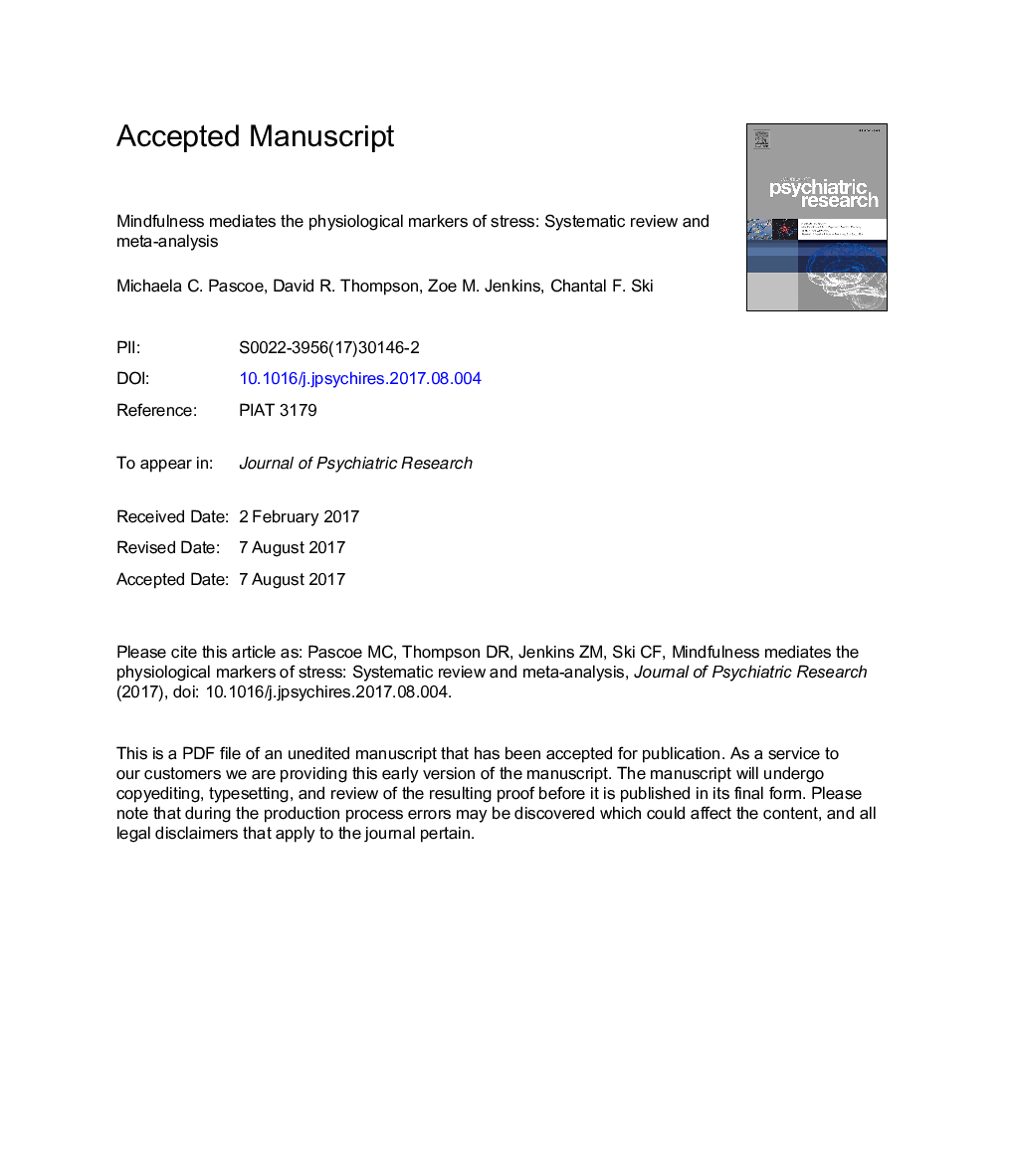| Article ID | Journal | Published Year | Pages | File Type |
|---|---|---|---|---|
| 4931979 | Journal of Psychiatric Research | 2017 | 63 Pages |
Abstract
Meditation is a popular form of stress management, argued to mediate stress reactivity. However, many studies in this field commonly fail to include an active control group. Given the frequency with which people are selecting meditation as a form of self-management, it is important to validate if the practice is effective in mediating stress-reactivity using well-controlled studies. Thus, we aimed to conduct a meta-analysis investigating the neurobiological effects of meditation, including focused attention, open monitoring and automatic self-transcending subtypes, compared to an active control, on markers of stress. In the current meta-analysis and systematic review, we included randomised controlled trials comparing meditation interventions compared to an active control on physiological markers of stress. Studied outcomes include cortisol, blood pressure, heart-rate, lipids and peripheral cytokine expression. Forty-five studies were included. All meditation subtypes reduced systolic blood pressure. Focused attention meditations also reduced cortisol and open monitoring meditations also reduced heart rate. When all meditation forms were analysed together, meditation reduced cortisol, C - reactive protein, blood pressure, heart rate, triglycerides and tumour necrosis factor-alpha. Overall, meditation practice leads to decreased physiological markers of stress in a range of populations.
Related Topics
Life Sciences
Neuroscience
Biological Psychiatry
Authors
Michaela C. Pascoe, David R. Thompson, Zoe M. Jenkins, Chantal F. Ski,
